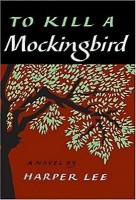 My oldest daughter teaches bilingual English in a City of Milwaukee high school, and I greatly enjoy our conversations regarding the literary works she assigns. However, I was surprised when she told me recently that she and her fellow teachers no longer felt comfortable assigning Harper Lee’s Pulitzer Prize-winning To Kill a Mockingbird.
My oldest daughter teaches bilingual English in a City of Milwaukee high school, and I greatly enjoy our conversations regarding the literary works she assigns. However, I was surprised when she told me recently that she and her fellow teachers no longer felt comfortable assigning Harper Lee’s Pulitzer Prize-winning To Kill a Mockingbird.
Published in 1960, Lee’s novel has for over sixty years garnered great admiration and respect as an American literary work. Many have considered the novel’s Atticus Finch to be an inspiring lawyer hero and taken the novel’s law-related narrative to be one of courageous resistance to racial injustice. As recently as ten years ago, virtually every American high schooler was expected to have read To Kill a Mockingbird Bird.
Why has the novel fallen so precipitously? I can think of at least three developments that have hurt its standing:
(1) The character Atticus Finch lost a good part of his appeal when Harper Lee’s Go Set a Watchman was published in 2015. This sequel portrays Finch as something much less than a crusader for civil rights. My goodness, he even attends meetings of white supremacist citizens’ groups!
(2) The novel uses the n-word not only frequently and also unreflectively, but in recent years the word has deservedly become taboo.
(3) A few African American characters in the novel work as servants for white people but others such as Tom Robinson and his family appear almost totally as victims. This portrayal is jarring given a realization that the denial of agency is a major part of oppression.
Thanks to the Black Lives Matter Movement and our growing awareness of the nation’s longstanding systemic racism, I understand the criticisms. Breaking up is hard to do, but I have stopped loving To Kill a Mockingbird, and I hereby announce that it has been dropped from the syllabus of my law and literature seminar.
That having been said, I hope at least one of the messages of To Kill a Mockingbird can be preserved. To wit, the novel nicely points out that members of certain groups do not benefit from our laws and/or from our purported commitment to a rule of law. These people are not treated justly in our legal system, and they do not have the financial resources and general wherewithal to make the system work for them. The times have changed, but To Kill a Mockingbird continues to warn us that the ideological touting of the rule of law can be a false front shielding the ongoing realities of inequality and oppression.

To kill a mockingbird came out on December 25, 1962 and eight months later Martin Luther King gave his speech that he wanted his children to be judged by the “content of their character”. In 1962 and 1963 the story of Atticus finch was front and center. A lawyer put principle above his self interest, and that we should celebrate forever.
The use of the n-word is used a lot because the author is attempting to portray history as accurately as possible. The word is never glorified, and the novel does offer reflections on its usage. For example, when Atticus tells Scout to stop saying it, because “it’s common.” He is implying here that only ignorant, trashy, people use that word. He wants Scout to be better than that.
I don’t think Atticus’ portrayal in the sequel should have any bearing on his status as an American literary icon, and a beacon for light, truth, justice, and equality.
The third criticism is a fair one, and I think it may be appropriate to pair Mockingbird with a more modern novel that includes black protagonists and/or characters with agency. But to stop teaching the novel, I think, is a mistake. Its basic message of treating everyone equally is exemplified in the tragic trial of Tom Robinson and in the townsfolk’s mockery of Boo Radley. Your last paragraph points to why I feel it should be continued to be taught, especially to American readers, given recent events in this country. It is as relevant as ever.